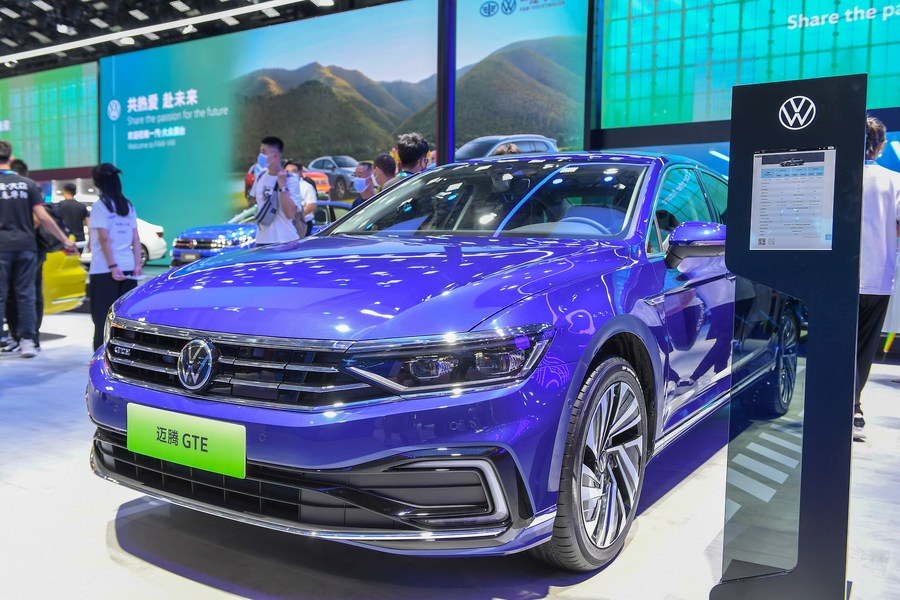
People visit the booth of the FAW-Volkswagen during the 19th China (Changchun) International Automobile Expo in Changchun, capital of northeast China's Jilin Province, July 15, 2022.(Xinhua/Zhang Nan)
BEIJING, Nov. 9 (Xinhua) -- A crowd of workers in dark blue suits or gray work clothes applauded enthusiastically during a huge ceremony celebrating the 25 millionth car rolling off the FAW-Volkswagen production line.
Impressed by the grand ceremony, Andreas Dick, vice president of FAW-Volkswagen Automotive Co., Ltd., described the company's latest achievement as an example of how globalization can benefit more people.
Founded in 1991, the passenger car joint venture between China FAW Group Co., Ltd. and Volkswagen AG has grown into one of the top-selling passenger vehicle manufacturers in the world's largest auto market. It now boasts production bases in five Chinese cities: Changchun, Foshan, Chengdu, Qingdao and Tianjin.
Fifty years since the establishment of diplomatic relations between China and Germany, the business ties between the two countries have flourished and grown stronger.
In 2021, China had been Germany's biggest trading partner for six consecutive years. More and more German companies are eyeing the booming Chinese market, and they foresee long-term success, given China's promising economic prospects and sound business environment.
Another prominent trendsetter is Siemens Shenzhen Magnetic Resonance Ltd. in south China's Guangdong Province. It is an iconic company that has bet on the super-large Chinese market and China's innovation hub.
"Shenzhen has an advantageous geographic location and has benefited from China's economic reform. Its inclusive environment, innovative approach, comprehensive supplier infrastructure, high governmental efficiency, and abundant well-qualified human resources make Shenzhen highly attractive to companies like Siemens," said Andreas Schneck, general manager of the company.
With over 1,200 employees, the wholly owned subsidiary of Siemens Healthineers has established a full industrial value chain in China, and offers a wide range of innovative magnetic resonance imaging and advanced therapy solutions to customers in more than 100 countries and regions around the world.
Since 2002, it has delivered more than 7,000 products to global customers, achieving double-digit business growth every year.
"Rooted in China, we create for the world," Schneck said, pointing at the "R&D in Shenzhen" label on one of their products.
There are more than 6,000 German companies in China and more than 3,000 Chinese companies operating in Germany. The rapid economic, trade and technological development of China and Germany has brought tangible benefits to the two countries and peoples, according to Shi Mingde, former Chinese ambassador to Germany.
In the first three quarters of this year, the BMW Group delivered 592,873 BMW and MINI vehicles to Chinese customers. Its sales of electric models maintained strong growth, rising 65 percent year on year in the first nine months.
With long-term, large-scale investment since 2010, the German carmaker's production base in Shenyang, northeast China's Liaoning Province, has been built into the group's largest production base globally. It is estimated that the Shenyang production base will expand its current annual output to more than 830,000 units after the group's two plant extensions opened in the city this year.
The future prospects of Germany and China are brightened by the two countries working together amid the challenges posed by carbon neutrality and carbon emissions reduction goals, said Klaus Zenkel, vice president of the European Union Chamber of Commerce in China.
"It's good timing for German companies to come here now. The world economy needs more dialogue and cooperation," he said.




 A single purchase
A single purchase









